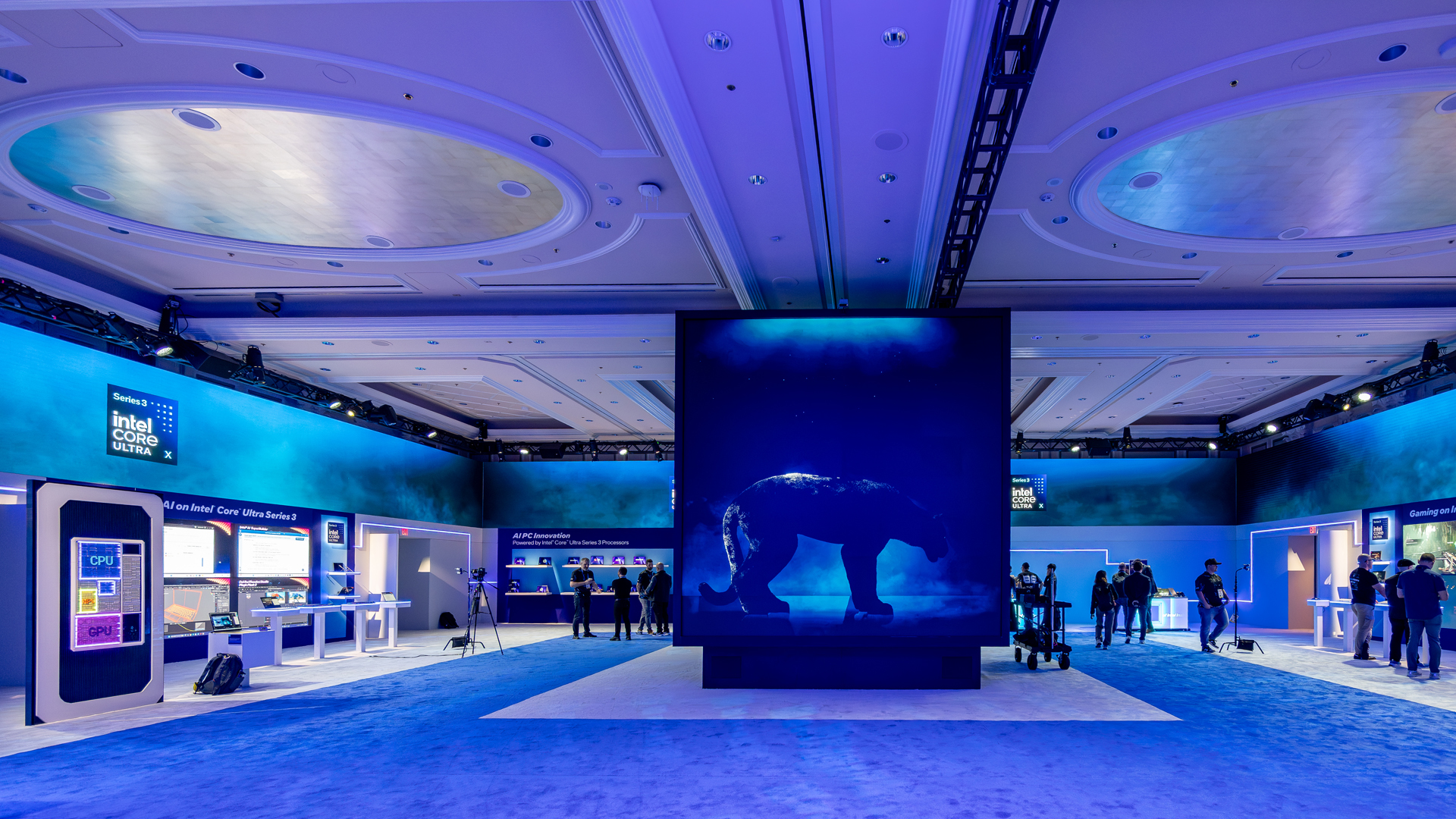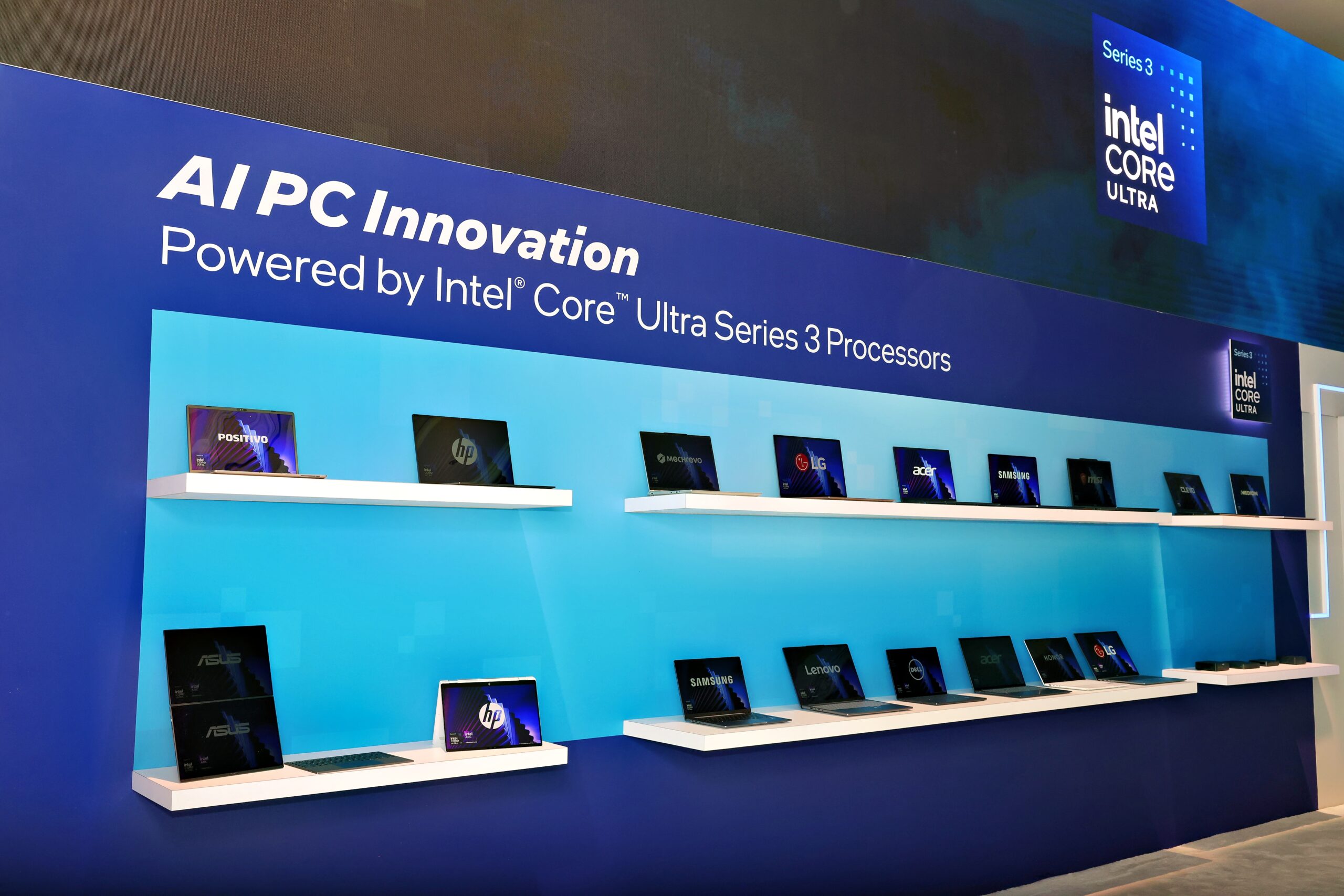An Intel-HP Collaboration Delivers Next-Gen AI PCs
Intel’s software ecosystem enabled new AI assistants on HP’s EliteBook X and EliteBook Ultra; for some assistants, it’s their first time on Windows-based PCs.
AI PCs are a new class of laptops designed to deliver AI-enhanced experiences — from productivity to creativity — that adapt to users’ needs and enhance people’s lives.
For HP’s Intel-based AI PCs, Intel contributed more than just hardware like its Intel® Core™ Ultra processors.
Intel worked closely with HP to co-engineer and optimize hardware platforms for AI workloads. By fine-tuning performance across the central processing unit (CPU), graphics processing unit (GPU) and neural processing unit (NPU), Intel helped HP benchmark and validate real-world use cases, ensuring selected AI applications run efficiently on HP devices.
New Wave of AI Experiences Enabled by Collaboration
HP’s latest AI PCs for business users — including the EliteBook X, EliteBook Ultra (announced in January at CES 2025) and EliteBook 8 (unveiled in March at HP Amplify) — are examples of how Intel’s software and platform teams worked closely with HP to optimize performance and AI readiness on Intel Core Ultra-based systems.
“We are delighted by the exceptional results Intel’s Client Software team and HP’s Commercial Personal Systems team achieved for the recent release of Intel® Core™ Ultra 200V series devices,” said Carla Rodriguez, vice president and general manager of the Client Software Ecosystem in the Client Computing Group at Intel.
Together, Intel and HP focused on identifying a set of AI-enhanced applications that could deliver immediate value to end users — from improving productivity to enhancing privacy — and on ensuring those apps were optimized to run locally across HP’s commercial portfolio. As HP developed early AI PC prototypes, Intel engineers collaborated closely to optimize performance across CPU, GPU and NPU resources. Engineers from both teams focused on delivering tangible improvements that real users would appreciate — from faster app response times to more efficient task handling.
With decades of experience supporting an open ecosystem, Intel partnered with HP to identify and benchmark the AI applications that matter most to business users. Together, the teams navigated a vast and growing marketplace of AI software applications — selecting those best suited to target customers and optimizing them to run efficiently on Intel's architecture. That close collaboration gave both teams confidence that the user experience would exceed expectations and ensured HP’s systems were ready to deliver differentiated, AI-accelerated value at launch.
“It’s important for us at HP to demonstrate the real-world value our AI PCs deliver — not just talk about it,” said Paola Mariani, principal product manager of AI PC Software Experiences at HP.
“When we shared our 2025 PC lineup and target personas with Intel, their team immediately partnered with us to identify the most relevant AI software applications. That collaboration helped us validate key use cases and ensure our platform delivers meaningful benefits to customers from day one. We’re grateful for their technical engagement and shared commitment to creating tangible value.”
Key Apps Run Faster and Better on HP’s AI PCs
Getting early access to HP prototypes — nearly eight months ahead of launch — enabled Intel to rigorously test performance across a range of real-world AI workloads.
Intel’s goal? Deliver to HP a curated list of AI applications best optimized for Intel-based commercial platforms.
Intel’s top engineers delivered quickly. Over an intensive two-week period, Intel teams invested more than 500 hours testing 12 configurations across eight AI PC models.
This work generated detailed performance insights that helped HP identify platform-level tuning opportunities and finalize software experiences that would be ready to share with customers beginning with product launches at CES 2025.
“This use case benchmarking was instrumental in validating the user experience across our new portfolio and demonstrating how AI PCs can enhance workflows from day one,” said Cory McElroy, vice president of Commercial Product Management at HP. “Intel’s hands-on collaboration provided the technical expertise we needed to quantify the value AI PCs deliver and to craft our go-to-market messaging.”
Intel’s software team identified nine AI-enhanced applications that performed particularly well on HP’s Intel-based PCs — backed by comprehensive lab data showing significant gains versus previous-generation systems.
These results informed HP’s sales enablement and underscored real performance benefits customers could expect.
For example, PowerBi, the business analytics solution with more than 115 million users, runs up to 45% faster1 than it did on a previous-generation HP laptop. That speed boost was the result of joint testing and tuning, where Intel and HP engineering teams worked together to optimize how the new processor handled PowerBi-specific tasks.
Here are five examples of how Intel-optimized AI software packages run best on HP’s EliteBook X and EliteBook Ultra AI PCs:
- Tableau: This business analytics solution visualizes data in charts and graphs. It runs up to 48% faster2 versus a system powered by Intel® Core™ i7-1365U.
- Adobe Lightroom: This online photo editor runs up to 32% faster versus a system powered by Intel Core i7-1365U.
- Canvid: This app helps create professional screen recording videos boosted by AI. It includes key features like AI captioning, background noise removal and background segmentation, optimized across Intel’s NPU and CPU working in concert with the GPU. Creating background effects is now as much as 223% faster3 than a previous-generation Intel® Core™ i7-1365U.
- Writeup: Powered by local large language models (LLMs), this AI writing assistant runs locally on the laptop with no data sent to the cloud, preserving user privacy and addressing security concerns. Optimized for Intel’s GPU, this app runs up to 165% faster4 than on a previous-generation Intel® Core™ i7-1370P.
- DeepBrain AI: This AI-powered app quickly turns text into lifelike videos using DeepBrain’s diverse selection of AI avatars and voices, reducing video production time and costs by 80%.
Both Canvid and Writeup, previously available only to Apple users, now run for the first time on Windows-based PCs through HP’s AI platform, making these tools newly accessible to a broader commercial audience.
“The result is a robust suite of tested software experiences that not only support HP’s marketing efforts, but more importantly, help customers understand what they can do with AI PCs today,” said Rodriguez. “Together, we’re delivering AI experiences that are faster, more efficient and tailored to real-world use cases that matter to business users.”
‘Excited About AI PCs’
Analysts and key media are leaning into HP’s pivotal shift toward an AI-powered era.
“Ultimately, HP’s AI push represents a broader shift in the industry — one where AI-driven automation, sustainability and personalization are becoming key differentiators,” wrote Dave Altavilla, principal analyst at HotTech Vision and editor-in-chief at HotHardware.com, in a Forbes recap of the HP Amplify conference. “For the company, AI is no longer a futuristic concept, it’s a present-day transformation that is driving throughout all of its products and services. HP’s latest entries into the Copilot+ PC category, including the EliteBook Ultra and HP OmniBook X, mark a clear step toward AI-first computing.”
WindowsCentral agreed. “HP is the only company that's actually succeeded in making me excited about AI PCs,” wrote Zachary Broddy in a lengthy analysis of HP’s current AI PC lineup.
“HP isn't the only place to get an incredible Windows laptop, but it is the best place to get an AI PC that can actually, truly do what your old laptop can't,” Broddy concluded. “If you truly want to know what an AI PC can do for you right now, HP is the company to look at.”
McElroy of HP characterized his company’s work with Intel: “This collaboration with Intel has been essential to delivering real, measurable value through our next-gen AI PCs. From performance benchmarking to software tuning, we worked as one team — and the result is a product experience our customers can see and feel. We couldn’t have done it without them.”
1Based on the time required to prepare source data for Power BI, find key influencers, decomposition trees and smart narrative tasks using AI. Tested on pre-production HP EliteBook X G1i with Core Ultra 7 268V, 32GB RAM and 2TB HDD vs. production build HP EliteBook 1040 G10 with Intel Core i7 1370P, 32GB RAM, 512GB HDD. Actual results may vary.
2Based on the time required to prepare source data in Tableau Prep Builder and the time in seconds it takes to use Tableau to use the Explain Data AI feature. (v.2024.3). Tested on pre-production HP EliteBook 8 G1i with Core Ultra 7 268V, 32GB RAM vs. production build HP EliteBook 840 G10 with Intel Core i7 1365U, 32GB RAM. Actual results may vary.
3Based on the time in seconds to complete the AI generated background effect in Canvid. Tested on pre-production HP EliteBook Ultra G1i with Core Ultra 7 268V, 32GB RAM and 1TB HDD vs. production build HP Dragonfly G4 with Intel Core i7 1370P, 32GB RAM, 1TB HDD. Actual results may vary.
4Based measurement of the tokens per second for a local LLM to translate a text file from English to Japanese. Tested on pre-production HP EliteBook Ultra G1i with Core Ultra 7 268V, 32GB RAM and 1TB HDD vs. production build HP Dragonfly G4 with Intel Core i7 1370P, 32GB RAM, 1TB HDD. Actual results may vary.







